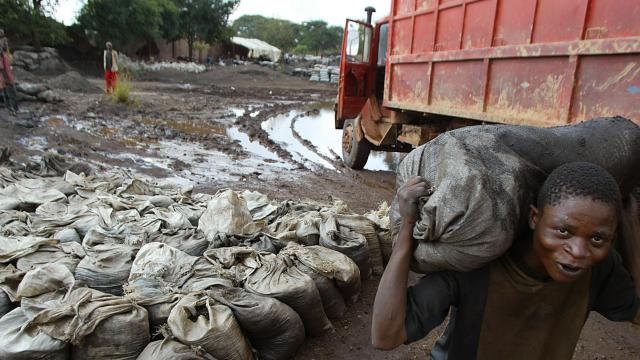A new report by Amnesty International claims that Apple, Samsung and Sony are consistently failing to perform the basic checks which are required to ensure that mining operations for essential minerals do not take advantage of child labour.
The report focuses on cobalt mining in the Democratic Republic of Congo (DRC) — the origin of 50 per cent of the mineral that’s used heavily in li-on battery production. Based on interviews with 87 people, the report explains that cobalt is mined by children as young as seven in the country, before it is sold on to large mineral firms such as Congo Dongfang Mining, Zhejiang Huayou Cobalt Ltd and Huayou Cobalt.
Those companies process the ore, before selling it on to companies in China and South Korea where it’s used to make batteries. Amnesty International claims that large manufacturers, including Apple, Sony and Samsung, use parts which contain the cobalt mined in these operations.
Speaking to the BBC, Apple explained that it was “currently evaluating dozens of different materials, including cobalt, in order to identify labour and environmental risks”, while Sony said it was “working with the suppliers to address issues related to human rights and labour conditions”. Samsung claimed that “contracts with suppliers who use child labour will be immediately terminated”.
The report claims that as many as 40,000 children work in the cobalt mines of the DRC. Some of the children interviewed for the report claim to work up to 12 hours a day, earning between $1 and $2 in the process. They work above ground, washing and carrying heavy loads of rocks. Amnesty International claims they often face physical abuse and exposure to dangerous gas and dust.
It’s not the first time these companies have faced complaints over the use of child labour. Both Samsung and Apple have been accused of exploiting underage workers in the past.
“Millions of people enjoy the benefits of new technologies but rarely ask how they are made. It is high time the big brands took some responsibility for the mining of the raw materials that make their lucrative products.” explained Mark Dummett, Amnesty International’s business and human rights researcher, in a press release. “Companies whose global profits total $125 billion cannot credibly claim that they are unable to check where key minerals in their productions come from.”
[Amnesty International via BBC]
Image by AP
